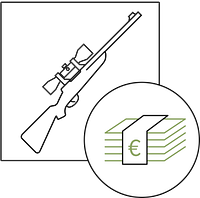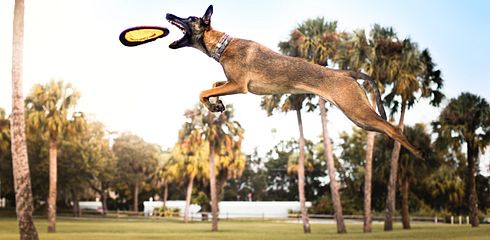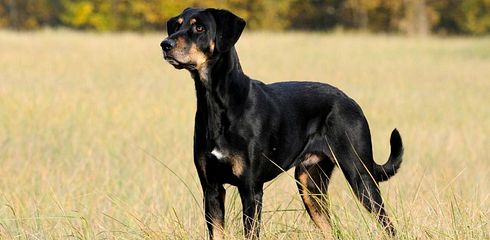The breeding and raising season begins, and with it, the leash requirement for dogs. From April 1 to July 15, dog owners are prohibited from allowing their four-legged friends to run free in nature. The leash requirement during this period serves as protection for animals, such as birds, that are hatching and raising their young during these months.
Why is the Leash Requirement Important?
If dogs run free during the breeding and raising season, there is a risk that they may discover young animals and sniff or even touch them. The consequence: the mother may then reject the young. Nesting birds, such as skylarks, field sparrows, and robins, need quiet zones to raise their young without stress. For the young animals, free-running dogs can have fatal consequences, such as abandoning the nesting process or the parents leaving the young, up to injuring or fatally attacking the wildlife. In addition to birds, there are also other animals that need protection during this time. This includes, for example, deer, hares, and other wildlife that also have offspring. It is particularly important for them to remain undisturbed during this time, as they need to care for their young. When dogs run free and encounter wildlife, it can lead to stress and fear, which can impair the animals' ability to care for and nurture their young. Furthermore, free-running dogs may chase or injure wildlife, which can also have fatal consequences.
What Penalties Are Imposed for Non-Compliance with the Leash Requirement?
Dog owners who do not comply with the leash requirement and still allow their dogs to run free must expect a penalty. This can take the form of a fine of up to €5000. The leash requirement applies in the so-called "free landscape," which includes areas of the forest and other open landscapes, even within built-up areas. Components of these areas also include the associated paths and bodies of water.
Exceptions to the Leash Requirement
There are special cases where dogs are exempt from the leash requirement during their duties. This includes hunting dogs, rescue dogs, herding dogs, guide dogs, and police dogs. Additionally, the leash requirement is not necessarily enforced in urban parks, but even here, animals may nest, so dog owners are asked to leash their dogs. In many municipalities, there are designated areas for playing and romping with dogs.
Conclusion
To ensure a harmonious relationship between humans and dogs, it is important for dog owners to adhere to the leash requirement and keep their dogs on a leash during this time. This not only protects nature and wildlife but also the dog itself. Because even if a dog can usually be called back well, during this time, due to the many new impressions and smells, it may behave differently than usual and follow its instincts. To avoid unwanted conflicts, it is advisable to always keep the dog on a leash.
Those who do not comply with the leash requirement must expect a fine of up to €5000. Additionally, there is a risk that the dog may chase or injure wildlife, causing serious consequences. Therefore, it is important for dog owners to adhere to the leash requirement and contribute to the protection of nature and wildlife. In exceptional cases, such as with hunting dogs or police dogs, the leash requirement may be waived. However, it is important that the dogs are properly trained and under control to avoid unwanted conflicts and damage.





























